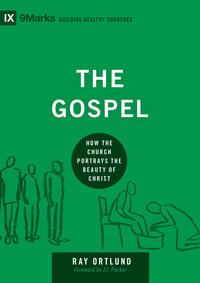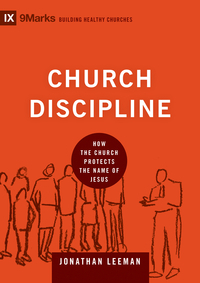Justin Taylor's Blog, page 101
June 28, 2014
Online Schedule for TGC Women’s Conference Livestreaming
Starting today you can livestream the TGC Women’s Conference, at the following schedule (all times are Eastern Daylight Time).
Saturday, June 28
Corporate Worship
Keith and Kristyn Getty
8:30 AM
Plenary 3
Paige Brown, “Fearing God in a Fallen World” (Nehemiah 5-6)
9:00 AM
Plenary 4
Nancy Guthrie, “Coming Together Around God’s Word” (Nehemiah 7-8)
10:30 AM
Workshop 1
Trillia Newbell, Kristie Anyabwile, Gloria Furman, Mary Mohler, Elyse Fitzpatrick, “Teaching Children about Jesus”
1:30 PM
Workshop 2
Rosaria Butterfield, “Homosexuality and Christian Faith”
3:00 PM
Workshop 3
Jani Ortlund, “Practicing Prayer: An Invitation to Pester God”
4:30 PM
Corporate Worship
Keith and Kristyn Getty
7:30 PM
Plenary 5
John Piper, “Responding to God According to His Word” (Nehemiah 9-10)
7:45 PM
Concert
Keith and Kristyn Getty
9:00 PM
Sunday, June 29
Corporate Worship
Keith and Kristyn Getty
8:30 AM
Plenary 6
Kathleen Nielson, Carried Sandom, Jenny Salt, “Celebrating! A Moment of Joy in Jerusalem” (Nehemiah 11-12)
8:45 AM
Plenary 7
Don Carson, “Leaning Forward in the Dark: A Failed Reformation” (Nehemiah 13)
10:30 AM
June 27, 2014
Online Schedule for TGC Women’s Conference Livestreaming
Starting today you can livestream the TGC Women’s Conference, at the following schedule (all times are Eastern Daylight Time).
Friday, June 28
Corporate Worship
Keith and Kristyn Getty
4:10 PM
Plenary 1
Kathy Keller, “Taking Action in Light of God’s Word” (Nehemiah 1-2)
4:30 PM
Corporate Worship
Keith and Kristyn Getty
7:30 PM
Plenary 2
Tim Keller, “Laboring for a God Who Fights for Us” (Nehemiah 3-4)
7:50 PM
Saturday, June 29
Corporate Worship
Keith and Kristyn Getty
8:30 AM
Plenary 3
Paige Brown, “Fearing God in a Fallen World” (Nehemiah 5-6)
9:00 AM
Plenary 4
Nancy Guthrie, “Coming Together Around God’s Word” (Nehemiah 7-8)
10:30 AM
Workshop 1
Trillia Newbell, Kristie Anyabwile, Gloria Furman, Mary Mohler, Elyse Fitzpatrick, “Teaching Children about Jesus”
1:30 PM
Workshop 2
Rosaria Butterfield, “Homosexuality and Christian Faith”
3:00 PM
Workshop 3
Jani Ortlund, “Practicing Prayer: An Invitation to Pester God”
4:30 PM
Corporate Worship
Keith and Kristyn Getty
7:30 PM
Plenary 5
John Piper, “Responding to God According to His Word” (Nehemiah 9-10)
7:45 PM
Concert
Keith and Kristyn Getty
9:00 PM
Sunday, June 30
Corporate Worship
Keith and Kristyn Getty
8:30 AM
Plenary 6
Kathleen Nielson, Carried Sandom, Jenny Salt, “Celebrating! A Moment of Joy in Jerusalem” (Nehemiah 11-12)
8:45 AM
Plenary 7
Don Carson, “Leaning Forward in the Dark: A Failed Reformation” (Nehemiah 13)
10:30 AM
John Piper’s Foreword to Barnabas Piper’s New Book on Being a Pastor’s Kid
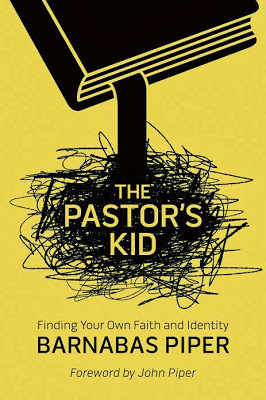 Barnabas Piper’s new book is on being The Pastor’s Kid: Finding Your Own Faith and Identity (David C. Cook, 2014)
Barnabas Piper’s new book is on being The Pastor’s Kid: Finding Your Own Faith and Identity (David C. Cook, 2014)
You can find out more about the book here.
Barnabas’s father, John Piper, wrote the foreword to the book, and with permission I’ve reprinted it below:
* * *
You will ask, “Was it painful for me to read this book?”
The answer is yes. For at least three reasons.
First, it exposes sins and weaknesses and imperfections in me.
Second, it is not always clear which of its criticisms attach to me and the church I love.
Third, this is my son, and he is writing out of his own sorrows.
Writing this book has been hard. Maybe it’s more accurate to say that a lot of hardship went into writing this book, some of it in my own family and some of it through the pain of other PKs I connected with along the way. So many PKs carry so much pain and anger and sorrow with them. Some of them have fallen into bitterness, and others are rightly doing the hard work of trust in Jesus to help them through.
I am overwhelmingly thankful that Barnabas is in that last category. It took trust and courage to write this book. The road has been hard. And sometimes, as he says, “We need to pour out what is boiling in us.” When that happens, pressure is relieved and people get burned.
But Barnabas is not out to burn. Not me or any pastor. His aim is healing. “That is part of why I wrote this book,” he says, “to help PKs make sense of, sort through, and express those bottled-up frustrations and pains.” Frustrations built up from carrying an “anvil-like weight,” of being the most “watched”—”the best known and the least known people in the church.”
But the boiling over does burn. “I have been hard on pastors throughout this book. I have pointed out weaknesses and tendencies and failures. I have prodded and demanded and pushed them to be different, to change, to become aware.” My suggestion for the reader is that, if it gets to hot in the boiler room, you take a break from the heat and jump in the pool of chapter eight.
There is a stream of grace that runs through this book. You taste it along the way. But it becomes a pool at the end. A soothing. Barnabas is honest about his own struggles and failures. He has drunk deeply at the fountain of grace. He knows from experience the ultimate solution for all of us:
I desire to point to Jesus as the turner of hearts and the lifter of all burdens. . . . Grace, the undeserved favor of God, through Jesus, is the source of life and personhood and identity. . . . It is in the freedom of Jesus’ overwhelming love that the PK can break out of false expectations and see what it is that makes Jesus happy.
As it turns out, when the boiling is over, and the burns begin to heal, there is hope for PKs and pastors and churches.
“It’s not all bad news for PKs.” Through it all they have been unwitting, and sometimes unwilling, apprentices. They have seen—and many have benefited from—the bad and the good.
We have seen the pleasures of ministry. . . . Helping mend a broken marriage, praying with a heartbroken widow, serving the destitute man who knocks at the door . . . the close fellowship of a united church staff or . . . the deep, humbling satisfaction of seeing God use faithful ministry over time to right a sinking ship of a church.
Boiling over because of painful experiences may be unavoidable at some point, but Barnabas beckons his fellow PKs not to “wallow and bemoan them. Rather we must own what responsibilities are ours: to honor Jesus, to honor our fathers and mothers, to love and support the church, and to go about our lives not as victims but as the redeemed. Grace is here for all of us.”
And that includes the sinful and wounded pastors. “No man is adequate to be a pastor . . . That is a job no person is up for, not alone, not without profound grace. And that is the key to all this: grace.” And, of course, it is true for the wife and mother, watching, with tears, the drama play out between her son and husband, or bearing the weight of her daughter’s rejection.
And finally there is grace for the church. “The church is our family, it’s the family that God gave us, so don’t give up on it. There isn’t a better place out there to be restored.”
When I received the manuscript of this book and read it, I gave a copy to our seventeen year-old daughter. “Would you read this, and then talk to me about how I can be a better dad?” She did. It was a good talk. It’s not over. I suspect she will have ideas about that when she is 30 and I am 80. I hope she will be spared some sorrows because of her big brother’s book. Of course, most of that hangs on me. And, as we have seen, on grace. Which is why I appreciated Barnabas’s encouraging conclusion:
But now I want to express thanks. I want to say that PKs are blessed to have parents who devote their lives to serving Jesus. . . . So thank you, pastors (and spouses). You have given your lives to serving Jesus and His church , and that is a blessing.
June 26, 2014
New ESV Reader’s Bible Giveaway
The new ESV Reader’s Bible is garnering a lot of attention.
See, for example, the excellent review by Bible design expert Mark Bertrand:
Even though I knew pretty much what to expect, the Reader’s Bible still surprised me. It’s a 5.5″ x 8″ clothbound hardcover that comes in a heavy duty slipcase, opens flat, and features a single column text setting in 9 pt. type with elegant accents in red — chapter numbers, headers, and page numbers. The big news, I suppose, is that there are no verse numbers in the Reader’s Bible. The page headers give a verse range, so finding specific passages isn’t all that hard. But this edition is meant for reading, not looking stuff up.
This isn’t the first Bible to be labeled a Reader’s Bible, but it is the first to reflect my idea of what a Bible designed for readers should look like. Let’s say there are two philosophies. One goes like this: most people who complain about not being able to read the Bible easily focus on the difficulty of deciphering small type, therefore a Bible for readers should have large type. The Allan Reader’s Editions have taken this tack, and they are basically large print reference Bibles. The design hasn’t changed; it’s simply been enlarged. The critical apparatus, the textual notes and cross-references, have been retained.
Take a look at the last prose book you read and see if it was a large print, multi-column reference work. Probably not. Most of the books we sit and read are formatted in a time-tested, reader-friendly layout designed to call as little attention to itself as possible in order to let the text itself shine. They are single column, paragraphed books with a minimum of distraction. The second approach to a reader’s edition involves designing the Bible to look like the kind of books we typically read for pleasure. That’s exactly what you find when you open the ESV Reader’s Bible. A book that sends no mixed signals, clearly intended to be read.
You can read the whole thing here, with lots of pictures. See also Mark’s notes on daily use of this Bible.
You can also download a sample of the interior.
WTS is currently running a sale where each edition of the Reader’s Bible is 50% off of the retail price:
ESV Reader’s Bible: Hardcover Edition
ESV Reader’s Bible: Walnut TruTone Edition
ESV Reader’s Bible: Genuine Leather Edition
They are also giving away six copies of the hardcover ESV Reader’s Bible to readers of this blog. Go here to enter your name.
A Great Set of Books for the Church: Building Healthy Churches from 9Marks
If you are looking for small books whose content outweighs their size, I would highly recommend the Building Healthy Churches series, from 9Marks and published by Crossway. These are outstanding authors talking in a concise but substantive way about issues crucial to the health of the church.
Here are the books published thus far.
Ray Ortlund, The Gospel: How the Church Portrays the Beauty of Christ
[Foreword by J. I. Packer]
“Compelling. Convicting. Encouraging. Probing. And most of all, entrancing. What a beautiful vision of what the church can be through the power of the gospel. How evident it is that the gospel has penetrated Ortlund’s own heart. Read it. Pray through it. Ask God to use its message mightily in your church and in many other churches as well.”
—Thomas R. Schreiner
[See sample material and endorsements]
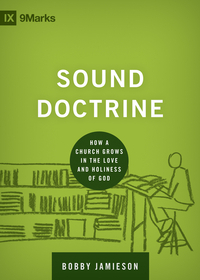 Bobby Jamieson, Sound Doctrine: How a Church Grows in the Love and Holiness of God
Bobby Jamieson, Sound Doctrine: How a Church Grows in the Love and Holiness of God
“If ever you’ve been tempted to think that doctrine is boring, divisive, or just plain pointless, this is a book for you. Bobby Jamieson shows that sound doctrine is beautiful, life imparting, and deeply desirable. I hope this message goes far and wide.”
—Michael Reeves
[See sample material and endorsements]
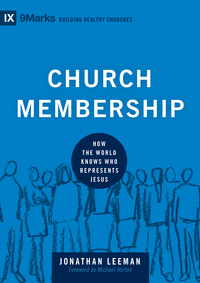 Jonathan Leeman, Church Membership: How the World Knows Who Represents Jesus
Jonathan Leeman, Church Membership: How the World Knows Who Represents Jesus
[Foreword by Michael Horton]
“Church leaders across many denominations will find this little book filled with practical ideas and good arguments that will help us cure Christians in our culture today of their allergy to church membership, pastoral authority, life accountability, and any limits to their personal freedom.”
—Tim Keller
[See sample material and endorsements]
Jonathan Leeman, Church Discipline: How the Church Protects the Name of Jesus
“Far too few biblically grounded, pastorally sensitive books on church discipline remain in print today. I know of none that is as exegetically accurate, practically relevant, and filled with real-life case studies of how churches should deal with a wide variety of common situations. On top of all this, Leeman is helpfully succinct and remarkably clear. Highly recommended!”
—Craig L. Blomberg
[See sample material and endorsements]
See my notes on the book here.
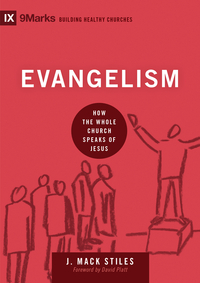 Mack Stiles, Evangelism: How the Whole Church Speaks of Jesus
Mack Stiles, Evangelism: How the Whole Church Speaks of Jesus
[Foreword by David Platt]
“Mack Stiles is one of the most natural, effective, determined, indefatigable evangelists that I know. I would want to know what he thinks about evangelism, whether it comes in a conversation, a letter, or an entire book. In this short volume, Mack conducts a clear and biblical exploration of how church fellowship multiplies individual evangelism. Every reader will be inspired, encouraged, and equipped to be a congregational evangelist. For the sake of the church, the gospel, and the world, this book belongs at the top of your reading list.”
—R. Albert Mohler Jr.
[See sample material and endorsements]
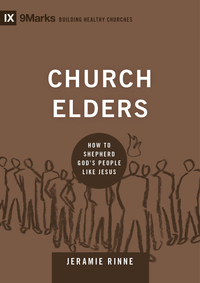 Jeramie Rinne, Church Elders: How to Shepherd God’s People Like Jesus
Jeramie Rinne, Church Elders: How to Shepherd God’s People Like Jesus
“Most unsolved problems in church life can be traced back to defective leadership. Jeramie Rinne unpacks what the Bible has to say about the identity and activity of the local church elder with a freshness and clarity that is profoundly helpful. This is a book that elders can read together to their profit and one that will help a congregation to pray for and support its leaders so that their work will be a joy and not a burden.”
—Alistair Begg
[See sample material and endorsements]
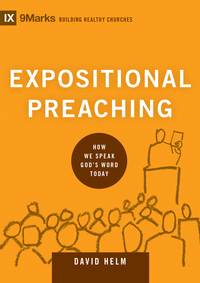 David R. Helm, Expositional Preaching: How We Speak God’s Word Today
David R. Helm, Expositional Preaching: How We Speak God’s Word Today
“David Helm has written the most helpful, concise, and useful book on expository preaching I have ever read.”
—Matt Chandler
“This little book is simply outstanding. It’s the best short book on preaching I’ve read. Helm’s advice is unfailingly wise, theologically informed, and extremely practical.”
—Kevin DeYoung
June 25, 2014
Crossway Hosting “Women of the Word Month” in July
 Crossway is publishing two new and important resources—Women of the Word by Jen Wilkin and the ESV Women’s Devotional Bible—as well as launching a 31-day initiative:
Crossway is publishing two new and important resources—Women of the Word by Jen Wilkin and the ESV Women’s Devotional Bible—as well as launching a 31-day initiative:
During the busy summer month of July, Crossway wants to help you get in the Word and stay in the Word! Join us for Women of the Word Month, a 31-day campaign to encourage and equip you for Bible study aimed at both your head and your heart. Sign up today to receive helpful content sent directly to your email inbox, including:
1. A DAILY DEVOTIONAL guiding you through the story of the Old Testament, including suggestions for reflection and prayer
2. PRACTICAL ARTICLES written by some of your favorite authors to encourage and equip you for personal or small group Bible study
3. VIDEO INTERVIEWS with well-known Christian women related to the life-changing power of God’s Word Includes contributions from Jen Wilkin, Kathy Keller, Kristyn Getty, Nancy Guthrie, Gloria Furman, Elyse Fitzpatrick, and more!
For more information or to sign up, go to Crossway.org/women.
For other recent resources from Crossway by and for women, see Gloria Furman’s Treasuring Christ When Your Hands Are Full: Gospel Meditations for Busy Moms, Carolyn and Nicole Mahaney’s True Beauty, and Nancy Guthrie’s The Word of the Lord (A 10-week Bible Study): Seeing Jesus in the Prophets [see the whole curriculum and DVDs here.]
June 24, 2014
Foundational Literature of Western Civilization
In his book The Case for Classic Christian Education (Crossway, 2003), Doug Wilson offers a list of “foundational” books for Western Civilization (some of which, but not all, would make their way onto his desert-island reading list.)
I’ve reproduced his list below, along with my own parenethetical recommendations on some translations, editions for kids, etc.
The Scriptures
Of course, the Scriptures are not included in the list of twenty-five books. The Bible is necessarily in a class by itself and forms the center of every class a student takes. But at the same time, the Bible is an important part of our broader literary heritage, particularly in the Authorized Version, popularly known as the King James. . . .
Written by Homer (c. 750 B.C.), this great work is about the fall of Hector in one sense, as well as the tragic fall of Achilles during the siege of Troy. The Trojan War is the setting, but this is not what The Iliad is about. Homer’s poetic gifts were great, but we should remember C. S. Lewis’s comment that it was his giftedness that made his granite despair shine as though it were marble.
[See Robert Fagles's translation. For kids, see Rosemary Sutcliff's retelling, The Wanderings of Odysseus: The Story of the Odyssey---or wait until July 2014 for a new edition of this retelling with illustrations by Alan Lee. For a Christian literary guide to the book, see Leland Ryken's work.]
Mark Twain once quipped that we now know that Homer was not the author of these works, but they were rather to be attributed to another blind Greek poet with the same name. The Odyssey, more accessible to many modern readers than The Iliad, is about the return of Odysseus from a life of freebooting to his home country and his adventures on the way.
[See Robert Fagles's translation. For children, see Rosemary Sutcliff's Black Ships Before Troy: The Story of 'The Iliad.' Or wait till August 2014 to get her version with Alan Lee's illustrations.]
Aeschylus was the father of Greek tragedy (525-456 b.C.). The Oresteia is a trilogy of three plays (458 b.C.)—Agamemnon, The Libation Bearers (Choephoroe), and The Kindly Ones (Eumenides). The apostle Paul’s language indicates his familiarity with these plays. The plays are about the return of Agamemnon from the Trojan War, his murder by his wife, and the unraveling of his dynastic order followed by the rise of another, more balanced order.
[The link is to the Fagles translation.]
Herodotus (484-c. 424 B.C.) was a great storyteller. He was first called the father of history by Cicero, but the appellation has stuck. Modernist historians want to qualify this somewhat, thinking that he has insufficient quantified boredom in his footnotes to be called a true historian. Nonetheless, he is a lot of fun to read.
Sophocles (c. 497-406 B.C.) wrote this play about a man fated to kill his own father and marry his mother. Aristotle used the play as his model for tragedy, and it has had a great influence on the definition of tragedy. Oedipus Rex also serves as a good springboard for discussions about fate and free will.
[The link is to the Fagles translation.]
Plato (c. 428-c. 347 B.C.) was great because he raised great issues. Of course, he also answered them from within his pagan worldview. This book should be read because it is important in the history of ideas, not because the ideas therein represent anything that Christians would want to adopt. Karl Marx was an intellectual who suffered misfortune because people tried to put his ideas into practice. Had Plato suffered the same misfortune, the world would still be talking about that totalitarian hellhole.
[For serious study, see Alan Bloom's essentially literal translation and notes.]
As Plato’s greatest student, Aristotle (384-322 B.C.) served as a tutor for Alexander the Great. His Nicomachean Ethics has had a major influence in Western moral philosophy, much of it problematic for the Christian. The pernicious influence comes more from the basis of the standard (reason versus revelation) than it does from what Aristotle praises or blames. When Paul asks, “Where is the wise man?” he is almost certainly talking about Aristotle. Man through all his knowing does not know God.
Virgil (70-19 B.C.) was the court poet for Augustus, the Caesar when Jesus was born. He retold the story of the founding of Rome, connecting it to the fall of Troy. Trojan refugees fled after the fall of their city, and after many adventures, they settled in Italy. Aeneas, their leader, is a man in the first part of the Aeneid, but as the poem progresses, he becomes a personification of Rome itself.
Athanasius (A.D. 295-373), the bishop of Alexandria, was the orthodox champion against the heresies of Arius, who denied the deity of Christ. The testimony of C. S. Lewis on this point should be sufficient: “When I first opened his De Incarnatione, I soon discovered by a very simple test that I was reading a masterpiece.”
[You can read an online version, including Lewis's introduction, here.]
The Confessions of St. Augustine
Augustine (A.D. 354-430) was one of the greatest thinkers the church has ever produced, and it would be hard to overstate his influence. His Confessions are autobiographical, devotional, philosophical, and everywhere rich. The Protestant Reformation should really be understood as Augustinian Christianity coming into its own, and Protestants would do well to get reacquainted with their spiritual father.
[See Tony Reinke's translation comparison. Peter Kreeft says that F.J. Shedd's translation opened up the book for him like no other. I usually use Maria Boulding's translation. For more commendations of this book and why you should read it, go here.]
The author was an unknown Christian poet from the eighth century (c. A.D. 700-750). The story is of a great hero who slays the monsters Grendel and Grendel’s mother, and who at the end of the epic lays down his life for his people in a fight with a dragon. This is a wonderful poem.
[There are several recent publications of this classic. The best-known is probably the NYT bestseller by Seamus Heaney. Last year Douglas Wilson published a new alliterative verse rendering. And this year has seen J.R.R. Tolkien's translation and commentary. For younger readers, see Ian Serrailier's rendering in modern verse narrative (sixth grade and up).
In this work many believe that Dante (A.D. 1265-1321) produced the supreme Christian literary work. Throughout the course of this "sacred poem," Dante as pilgrim is escorted through Hell, Purgatory, and Heaven, and comes finally to the Beatific Vision.
[See Anthony Esolen's translation of Inferno, Purgatory, and Paradise.]
Geoffrey Chaucer (A.D. 1343-1400) belongs to the high medieval period. His greatness as a poet is generally recognized. Pilgrims on the way to Canterbury tell one another stories to pass the time, and the stories reveal many of the tensions and contradictions of medieval life—from sacred to profane, from holy to bawdy. With regard to the bawdy aspect, Chaucer himself believed that he sometimes got carried away, and much to the consternation of modern liberated scholars, he said he was sorry. Chaucer was almost certainly influenced by his contemporary, Wycliffe, and was probably numbered among the Lollards, followers of Wycliffe.
[For a retelling for children, see Geraldine McCaughrean's version.]
Hamlet, Macbeth, Henry V, Much Ado About Nothing, Midsummer Night’s Dream
William Shakespeare presents us with some difficulties. The first is the question of dates, which depend on who Shakespeare was. Since I follow Joseph Sobran’s arguments for the Oxfordian authorship of the plays, I simply refer you to him. The other difficulty is that of selecting which plays should represent his genius, whoever he was. The five above will have to do. Since they are plays, they were meant to be seen, not read. Good videos of some of these are available.
[For a critical complete set of Shakespeare's works, see the Pelican edition. Leland Ryken has a guide on Macbeth and on Hamlet. For children, see Ten Tales from Shakespeare by Charles and Mary Lamb.]
Institutes of the Christian Religion
John Calvin (1509-1564) was a strong personality who still evokes strong and sometimes passionate responses, both for and against. Nevertheless, the stubborn historical fact remains that he was the single greatest systematizer and organizer of the Protestant theology and faith. He was a truly great man, and this great work was published in its first form when Calvin was still a young man.
[The definitive two-volume edition is edited by John McNeill; unfortunately it seems to be currently in print only in paperback. For help, see A Reader's Guide to Calvin's Institutes, by Anthony N. S. Lane.]
Junius Brutus is a pseudonym for an unknown Huguenot writer of the sixteenth century. This book represents a Protestant marriage of medieval and modern thinking about political civil order. The book was enormously influential in the American colonies prior to our War for Independence.
George Herbert ( 1593-1633) was a devotional Anglican poet whose great theme was the authority of grace. Like his contemporary John Donne, he was a poetic craftsman of the first order. The catholicity of his writing has given him a broad appeal among Christians.
[See Leland Ryken's guide to the devotional poetry of Herbert, along with Milton and Donne.]
John Milton (1608-1674) was a genius of the first rank. One astute observer said that the English language collapsed under the weight of that genius. Paradise Lost is an artistic monument, but it is not an easy one to apprehend at a first reading. Taking a class on it or reading some companion volumes would be very helpful.
[Here is a version for children. See also Leland Ryken's Christian guide.]
John Bunyan (1628-1688) was an unlettered tinker turned preacher who wrote a book that continues to astonish the world. The allegory is straightforward, but the book nevertheless has depths that account for its incredible staying power. C. S. Lewis said of this work: “The greater part of it is enthralling narrative or genuinely dramatic dialogue. Bunyan stands with Malory and Trollope as a master of perfect naturalness in the mimesis of ordinary conversation. . . . In dialogue Bunyan catches not only the cadence of the speech but the tiny twists of thought.”
[If you like things in the original, I don't know of anything better than Banner of Truth's deluxe edition. See Leland Ryken's literary guide. See also Derek Thomas's Ligonier class, "The Pilgrim's Progress: A Guided Tour." For children, the two most famous versions are Dangerous Journey (an illustration-rich abridgment, using a lot of original wording) and Helen Taylor's Little Pilgrim's Progress, a full retelling with the characters as children.]
Blaise Pascal (1623-1662) was a Jansenist, part of a movement within the post-Reformation Roman Catholic Church trying to turn Rome back to an Augustinian foundation. The Jansenists are best understood as “Protestants” who never left the Church of Rome. Pascal was a great mathematical genius as well as a devotional mystic. “The heart has its reasons of which reason knows nothing: we know this in countless ways.”
[I have used Peter Kreeft's Christianity for Modern Pagans: Pascal's Pensees, which intersperses Pascal's Pensees with Kreeft's helpful commentary and application.]
Jane Austen (1775-1817) wrote one of the finest examples of a comedy of manners. Her writing displays an understanding of great psychological depths without becoming pathological about it, as more recent writers have done.
Johann Goethe (1749-1832) created in this drama a work that is archetypical of the great Romantic themes of his era. Many German legends told fantastic stories of the fifteenth-century magician Georg Faust, who sold his soul to the devil. Christopher Marlowe wrote a play about Faust in the late sixteenth century, at the end of which the soul of Faustus is lost. Goethe ends the story differently, and in that difference we can see the desolations of our modern era. Instead of salvation by grace, we have salvation for free.
The Adventures of Huckleberry Finn
Mark Twain published this book in 1885. The fact that just about every- one reads it in high school and that it is a really good story enjoyed on the surface tends to obscure for us just what a great book it is. Hemingway said that all modern literature descends from Huckleberry Finn. H. L. Mencken praised Twain to the heights.
This novel by Fyodor Dostoyevsky (1821-1881) is in the minds of many one of the contenders for the title of the greatest novel ever written. This is a strange way to talk about a novel, too reminiscent of People magazine’s tendency to declare someone or other the sexiest man alive. Nevertheless, this kind of praise does give some idea of the novel’s reputation, and it is fair to say that it represents “a consummate work of Christian imagination.”
According to Joseph Frank of Princeton University, the 2002 translation by Richard Pevear and Larissa Volokhonsky is “Heartily recommended to any reader who wishes to come as close to Dostoevsky’s Russian as it is possible.”
J. R. R. Tolkien (1892-1973) wrote what is already being called the novel of the twentieth century. While it is far too early to make this judgment, it is certainly not too early to hope that the judgment proves correct. The story of the one ring, of Frodo, Sam, Gandalf, and every other creature in Middle Earth will no doubt be read for centuries to come.
[If you like big one-volume editions, you can get it in paperback or hardcover.]
June 23, 2014
Leithart vs. Walton on Genesis 1
Peter Leithart offers an interesting critique of John Walton’s The Lost World of Genesis One: Ancient Cosmology and the Origins Debate. Here is his summary:
Walton’s main conceptual contribution—the functional/material distinction—isn’t convincing, and some of the main planks of his biblical analysis are weak, partly because they rely on his questionable functional/material distinction. His understanding of the pre-Genesis 1 world is contradictory: He wants to say it is unproductive for biblical reasons, but he’s willing to insert into that world the teeming energy of evolutionary process.
Clever as it is, Walton’s thesis doesn’t live up to its promise.
You can read the whole thing here.
How Stories Work
From Leland Ryken’s Crossway Christian Guides to the Classics:
Why do people tell and read stories?
To tell a story is to
(a) entertain and
(b) make a statement.
As for the entertainment value of stories, it is a fact that one of the most universal human impulses can be summed up in the four words tell me a story. The appeal of stories is universal, and all of us are incessant storytellers during the course of a typical day.
As for making a statement, a novelist hit the nail on the head when he said that in order for storytellers to tell a story they must have some picture of the world, and of what is right and wrong in that world.
The things that make up a story.
All stories are comprised of three things that claim our attention—
setting,
character, and
plot.
A good story is a balance among these three.
In one sense, storytellers tell us about these things, but in another sense, as fiction writer Flannery O’Connor put it, storytellers don’t speak about plot, setting, and character but with them.
About what does the storyteller tell us by means of these things? About life, human experience, and the ideas that the storyteller believes to be true.
World-making as part of storytelling.
To read a story is to enter a whole world of the imagination. Storytellers construct their narrative world carefully. Worldmaking is a central part of the storyteller’s enterprise.
On the one hand, this is part of what makes stories entertaining. We love to be transported from mundane reality to faraway places with strange-sounding names.
But storytellers also intend their imagined worlds as accurate pictures of reality. In other words, it is an important part of the truth claims that they intend to make. Accordingly, we need to pay attention to the details of the world that a storyteller creates, viewing that world as a picture of what the author believes to exist.
The need to be discerning.
The first demand that a story makes on us is surrender—surrender to the delights of being transported, of encountering experiences, characters, and settings, of considering the truth claims that an author makes by means of his or her story.
But we must not be morally and intellectually passive in the face of what an author puts before us. We need to be true to our own convictions as we weigh the morality and truth claims of a story. A story’s greatness does not guarantee that it tells the truth in every way.
Justin Taylor's Blog
- Justin Taylor's profile
- 44 followers



